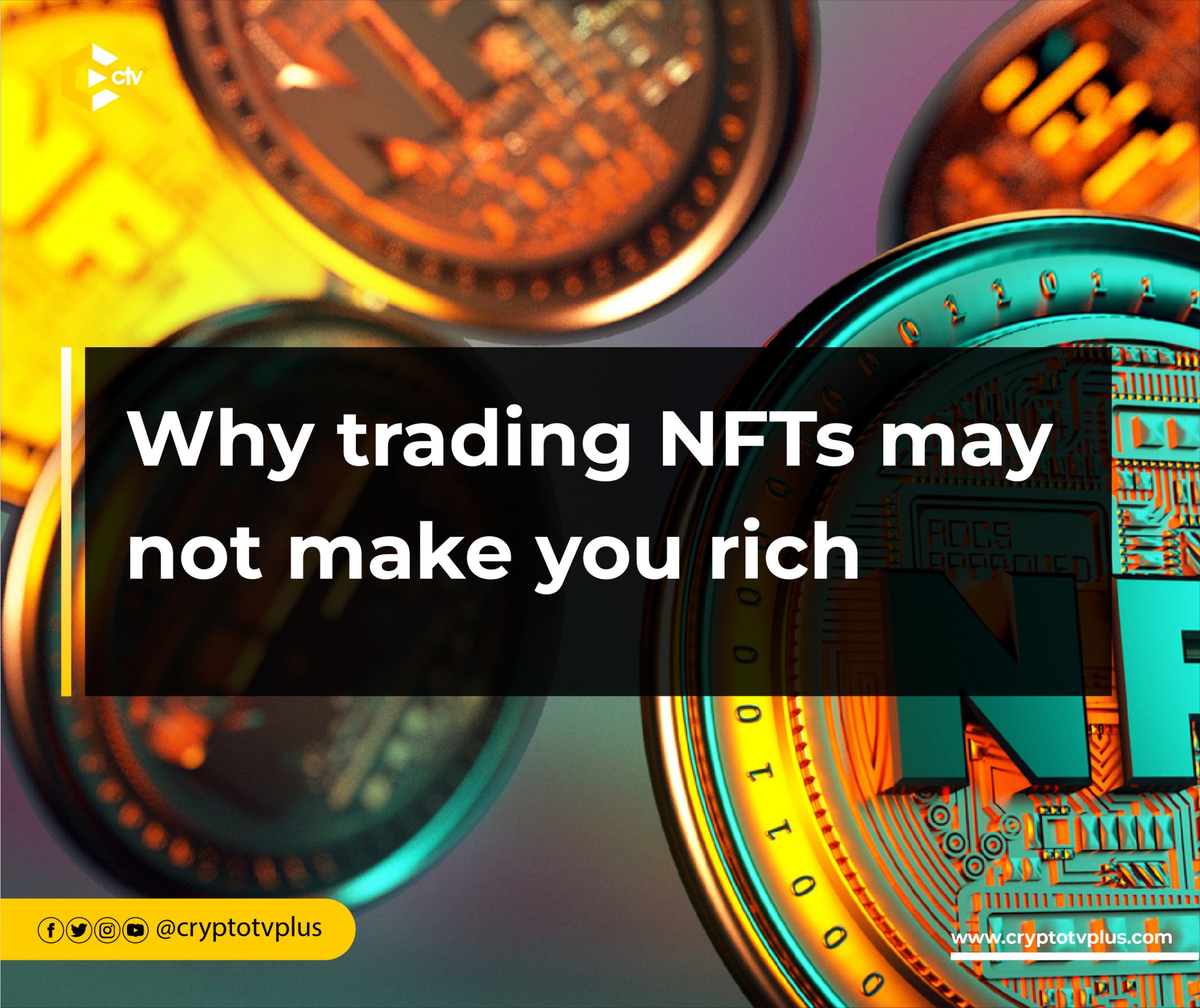News
Why trading NFTs may not make you rich

The sphere of digital art is expanding rapidly, and with it, the market for non-fungible tokens (NFTs) is on the rise. These extraordinary digital assets have garnered much attention as they sell for millions of dollars at auctions and online marketplaces like Opensea. Some of these NFTs that have sold for quite shocking prices include the Everyday NFT by Beeple ($69M), and several CryptoPunks and BAYC NFTs.
The market is expected to grow to $230 billion by the end of 2030. It is no wonder that people and multinationals like Visa, Tiffany and Co, Nike, Football Clubs and celebrities are starting to take notice and are curious about the prospect of trading NFTs to potentially reap a substantial profit. However, before you decide to invest all your savings, it is imperative you comprehend the fact that trading NFTs may not necessarily make you rich. Here are some reasons to consider:
NFTs are highly subjective
The worth of an NFT is subjectively determined by the buyer’s perception of its value. The fact that an NFT sells for a high price does not indicate that it is objectively worth that much. The value is based on the buyer’s personal preference and what they are willing to pay for it. This means that the worth of NFTs is subjective and unpredictable. This is unlike fungible assets like Bitcoin which has a very high trading frequency which allows for easy and efficient fair price discovery. NFTs do not yet enjoy this luxury because it’s highly illiquid compared to fungible assets.
The market is unstable
Similar to any investment, the market for NFTs can be unpredictable. The price of NFTs can fluctuate considerably in a short amount of time, making it a risky investment. Moreover, the market for NFTs is relatively new and untested, making it challenging to predict its long-term stability.
High barriers to entry
While it is possible to produce and sell your NFTs, the process can be complex and necessitates a certain level of technical expertise especially for new market entrants. Additionally, purchasing NFTs from established artists and marketplaces has a high barrier to entry considering their prices could be much higher than less known artists thus excluding you from taking a position in a potentially better NFT. Therefore, it may be arduous to enter the market and make a profit, particularly if you are new to the digital art world.
Lack of regulation
The NFT market is predominantly unregulated, which makes it a breeding ground for fraud and scams. Without proper regulation, it is challenging to ensure that the NFT you are buying is authentic and worth the price you pay for it. Furthermore, this lack of regulation can make it arduous to recover your investment if something goes wrong. Trust but verify.
NFTs are not a shortcut to wealth
Despite the buzz surrounding NFTs, it is important to remember that they are not a shortcut to wealth. Although it is possible to make a profit by trading NFTs, it is essential to approach it with a long-term perspective and not expect an overnight fortune. As with any investment, it takes time, effort, and some degree of risk to see a return.
Conclusion
Trading NFTs may not make you rich. Their prices are largely moved or influenced by qualitative factors such as cultural significance as in the case of Azuki, historical relevance as we can find in CryptoPunk and mimetic value. This makes their value highly subjective, the market is unstable and risky. While it is possible to make a profit by trading NFTs, it is vital to exercise caution and not expect an instant windfall.
Read also: Animoca Brands & Hex Trust launch Gryfyn — an NFT-Centric Wallet












